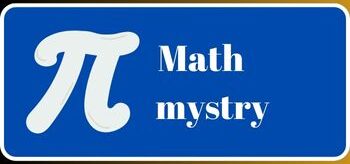Currently Empty: $0.00
- Description
- Curriculum
- FAQ
- Notice
- Reviews
Linear algebra is a mathematical discipline focused on vectors, vector spaces, linear transformations, and the solutions of linear equations. It lays the groundwork for comprehending multidimensional spaces and is crucial in numerous domains, such as physics, engineering, computer science, and economics. Key concepts in linear algebra include matrices, determinants, eigenvalues, and eigenvectors, which help analyze linear systems and transformations. Its applications span solving equations, optimizing problems, and modeling complex phenomena, making it an essential field in both pure and applied mathematics.
What Will I Learn?
- In a course on linear algebra, you can expect to learn the following essential concepts:
- Vectors and Vector Spaces: Gain an understanding of vector properties, including operations like addition and scalar multiplication, along with the structure of vector spaces.
- Matrices: Discover matrix operations, different types of matrices, and how to represent linear transformations using matrices.
- Systems of Linear Equations: Learn to solve systems of equations through various techniques, including substitution, elimination, and matrix methods like Gaussian elimination.
- Determinants: Explore the properties of determinants and their importance in solving linear equations and determining the invertibility of matrices.
- Eigenvalues and Eigenvectors: Understand these critical concepts and their applications in analyzing linear transformations and systems.
- Linear Transformations: Grasp the idea of linear mappings between vector spaces and how they can be represented with matrices.
- Applications: Apply linear algebra concepts across various fields, such as computer graphics, machine learning, optimization, and more.
- Inner Product Spaces: Learn about dot products and norms, leading to concepts like orthogonality and projections.
Targeted Audience
The intended audience for a course or resource on linear algebra typically includes:
- Students: High school and college learners studying mathematics, physics, engineering, computer science, economics, and related disciplines.
- Professionals: Individuals in technical fields such as data science, machine learning, statistics, and finance who require a strong grasp of linear algebra in their work.
- Researchers: Academics and researchers in mathematics and applied sciences aim to deepen their understanding of linear algebra for theoretical or practical research purposes.
- Educators: Teachers and instructors looking to improve their comprehension of linear algebra concepts to better teach their students.
- Lifelong Learners: Anyone interested in mathematics who wishes to explore linear algebra principles for personal or professional development.
What is an LMS (Learning Management System)?
A Learning Management System (LMS) is a software application that facilitates the administration, documentation, tracking, and delivery of educational courses and training programs. It provides a centralized platform for educators or organizations to manage and deliver content, assess learner progress, and facilitate communication.
What are the key features of a Learning Management System?
Common features of an LMS include content management, user management, assessment tools, reporting and analytics, communication tools (such as forums or messaging), and integration capabilities with other software systems. These features collectively support efficient and organized online learning experiences.
How can an LMS benefit educational institutions or businesses?
LMS streamlines training and educational processes, allowing institutions and businesses to deliver consistent content, assess learner performance, and monitor progress. It facilitates remote learning, personalized learning paths, and often reduces administrative overhead, making it an essential tool for scalability and efficiency.
What is the role of an LMS in employee training and development?
In the corporate setting, an LMS plays a crucial role in employee training and development. It enables organizations to create, deliver, and track training programs, ensuring employees have access to relevant resources. LMS also supports compliance training, skill development, and ongoing learning initiatives.
1. Feature Alert!
Explore Our Latest Additions – Unleash Enhanced Functionality Today
2. Maintenance Notice
Scheduled Downtime on [Date]. Thanks for Your Patience.
3. Upcoming Event!
Join Us for [Event Name]. Save the Date and Get Ready for an Exciting Experience!
Stars 5
1
Stars 4
0
Stars 3
0
Stars 2
0
Stars 1
0



